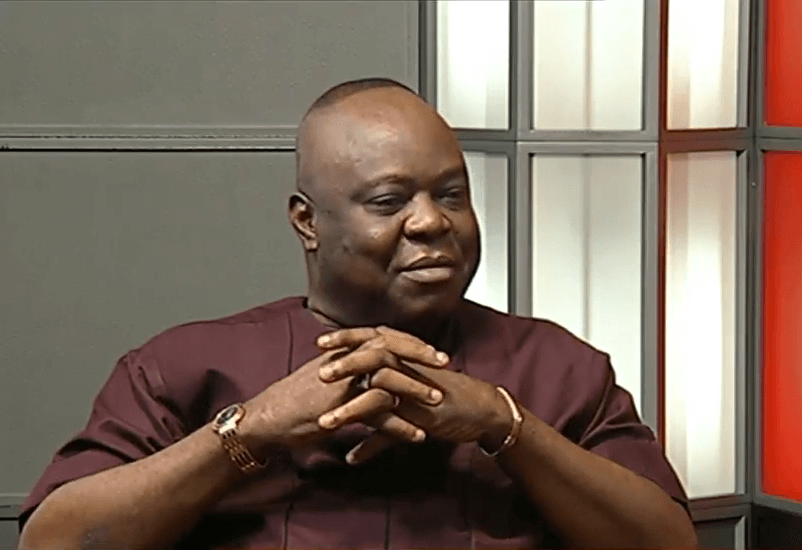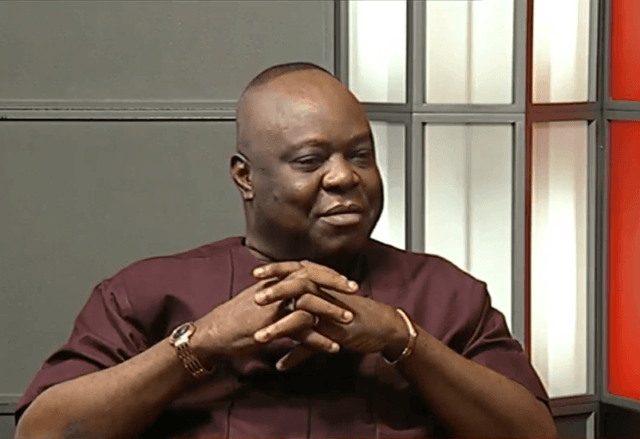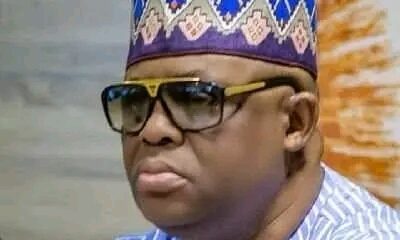Political Issues
Nigeria 2019: Smoke And Mirrors -By Dele Agekameh

The European Union Election Observation Mission, EU EOM, has just released its final report on Nigeria’s 2019 elections. The report has sparked a new wave of criticism against the 2019 elections conducted earlier in the year. Ever since the conclusion of the elections, accusations and counter accusations have been traded among political parties and other major players in the election. Criticism has also been directed at the election umpire, the Independent National Electoral Commission, INEC. Outside the blame game, the EU EOM report is really an indictment on the entire country, and that includes the officials, politicians, political parties and ordinary Nigerians.
The re-ignited election controversy has also touched on issues surrounding the existence of a data server run by INEC during the elections. The People’s Democratic Party, PDP, and its candidate at the elections, Atiku Abubakar, have since filed an action in court challenging the victory of the incumbent and winner of the election, President Muhammadu Buhari. An important part of the case of Atiku and PDP are the alleged servers that supposedly carry information proving that Atiku, indeed, won the election based on data received from the card readers employed during the election.

Perhaps, to remove itself from the server controversy, the EU EOM, through its representative, has declared that it is not aware of any server. This neither confirms the server’s existence nor denies it. The declaration by the external observers may be detrimental to Atiku’s case. But whatever the case may be, the server issue is sucking the energy out of the type of electoral debate we should be having right now. A good place to glean the issues we need to resolve is in the EU EOM report and its 30 recommendations. The server controversy may be restricted to who won or lost between Atiku and Buhari, but the issues highlighted in the report and many of the recommendations, if instituted, can help the country avoid controversies of this type in future elections.
However, the positives in the report by the EU mission include the observation that parties and candidates were able to campaign and gather freely to do so, thereby contributing to the competitiveness of the election. According to the report, freedom of movement and expression were largely respected in the run up to the election. The report also had it that Civil society organisations were also allowed the freedom to contribute to the success of the exercise. One particular observation about INEC was that although it worked in a difficult was able to make some improvements, such as the simplification of voting procedures.
Asides the few positive observations that were made, the general import of the report was less than complimentary. The report concluded that there is a need for fundamental electoral reform in the country. Based on its observations, the observers found systemic failings that led to severe operational and transparency shortcomings, electoral security problems and low turnout. The information communication for the election was also faulted. Particularly, state-run radio stations were found to have primarily served the interest of the incumbents in most states.
Most troubling, as we all saw during the election, were the pockets of violence that occurred in some areas. Also connected to the violence was the intimidation and harassment of journalists, voters and even some observers in certain areas. Security agencies were particularly fingered in the harassment and intimidation that occurred during the election, in line with the complaints of many voters after the election. The report stated that the role of the security agencies became more contentious as the process progressed, with emphasis on the intimidation of INEC officials in 20 states across the country.
The report contained veiled criticism for the judiciary because of conflicting and late rulings, and for the president on the controversial suspension of the Chief Justice of Nigeria very close to the elections. Politicians and political parties were similarly criticised for failing to rein-in irate supporters in the electoral skirmishes that sometimes led to violence. Even though INEC invited the EU mission to come to observe the elections, many of the problems were traceable to lapses in its own operations.
The fear is that that the controversy generated by the report is smouldering in the wrong direction. Already, much attention is being given to the server issue, when the security agencies, courts and prosecutors were indicted in the report. It is not that the server matter is unimportant in the general picture of things, but while it is still a matter of litigation, there is little to be gained in the fixation on that subject. Addressing the wide range of issues confronting the country’s electoral process could be a better use of our time. By discussing those issues, people can force government to begin to respond, instead of throwing accusations about who said what and when for the next 2 years.
Expectedly, people in government are “thanking” the EU EOM for putting the server matter to rest. That premature celebration smacks of ignorance and lack of understanding of the principles of law or the seriousness of the allegations made by Atiku and Co. Most of all, it is a point of view that betrays complete misunderstanding of what role external observers play in elections. The report is a learning opportunity that can be beneficial if the recommendations are taken seriously and serious steps put in place to implement them. After all, the observers did not fail to note that, with the exception of a few, recommendations from its 2015 report had largely not been adopted.
One issue that falls right at the door of President Buhari is the matter of weak electoral laws. Recall that an amendment to the electoral law was pending before the president for his assent before the elections took place. Many think that passing that bill into law would have minimised the abuse of the process that occured, including the current controversy about server or no server. Although the president may have had his reasons for refusing to sign the bill, many Nigerians are not entirely sure that those reasons are just. That distrust is symptomatic of the systemic failings observed by the EU observers.
It is time we take a critical look at our electoral report card and make the necessary changes to ensure that we are on the right track for 2023. We should not deceive ourselves. These problems are there and visible right now. We should not wait to hear the announcement of postponement of elections again in 2023. We have displayed a troubling lack of preparation in majority of the elections that have ever been conducted in this country. Therefore, it is a matter of urgency, for INEC and all that will be involved in the next elections to begin making preparations now by doing the needful.
In truth, we should not wait for observers from Europe to tell us that our house is not in order. But now that they have, it is smart to take a good look at the observations and recommendations with a view to drawing a plan to adopt or modify some of them to suit our needs. The government in power continually downplays the role of the violence, intimidation and irregularities in the last election. The opposition too magically finds fault only in places where they lost elections, while people cry blue murder concerning results, depending on whether their candidate of choice won or lost. It is all beginning to look like an exercise in smoke and mirrors. We need to do better.
For comments, send SMS (only) to 08058354382.



















